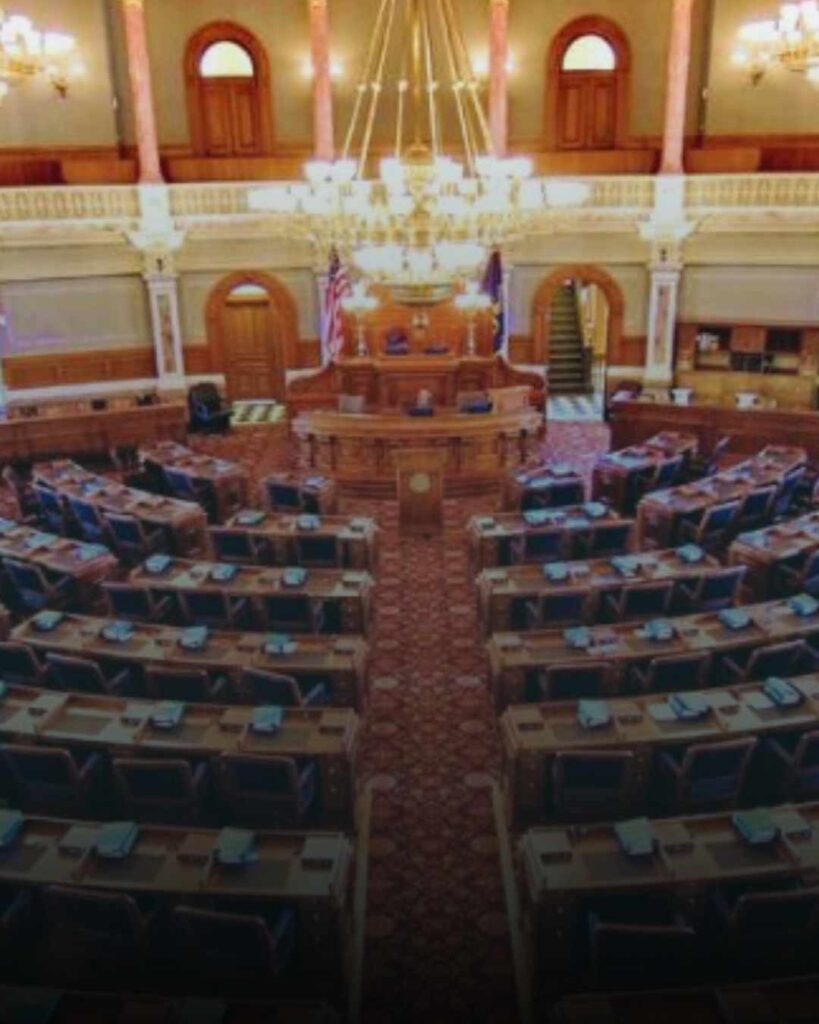
The kids are alright, but state investment in them needs to be greater.
Failure to invest in the systems that support at-risk youth in the state is a policy decision to not invest in the future of all Kansas children.
The 2016 youth justice reforms have not been allowed to fulfill their promise to Kansas families and their children. This is a larger systemic failure of the lack of mental health services in the state. Shifting blame for the woes of the foster care system onto the reforms obscures the lack of state investment in at-risk youth. It is a reaction to a symptom, not a treatment for the overall disease of a failing mental health system.
Reforms are seeing success despite the broken promises of investment in Kansas’ at-risk youth.
Outcomes for Kansas children continue to support the importance and success of reforms and the use of evidence-based interventions to achieve successful outcomes and reduce recidivism. For example, most children involved in the justice system are referred to Immediate Intervention Programs (IIP), mental health services, or other treatment programs. Further, the reduction of reentry since youth justice reforms in 2016 has shown these programs have more success and better outcomes than incarceration does.
These successes have been realized despite an ongoing mental health crisis in the state, limited community-based resources for youth involved in the justice system, and legislative efforts to roll back reforms. Since the reforms’ initial years, officials have failed to invest fully in their promises of restorative and equitable justice. Deep tax cuts and COVID-19 economic conditions caused pressure on the state budget, and lawmakers have shifted $21 million from money for justice-involved youth services and community programs to other areas of the budget. Kansas officials must still fulfill their commitment and promise to the state’s children with actions and investment. Only then will we be able to fully evaluate the true success of justice reforms for Kansas children.
Blaming youth justice reforms for the struggles in the foster care system is misleading and unfactual.
State foster care leaders have blamed their struggles to find stable youth placements on the youth justice reforms. They argue that they have an influx of children entering their care who otherwise would have been treated under the youth justice system before 2016. They say these children have behavioral problems that they are not equipped to handle and cannot find placements for.. Yet, there is no evidence that the number of children entering foster care due to child behavior problems has increased since the justice reforms. The trend since youth justice reforms shows the number of children entering foster care due to behavioral problems has trended downward. Further, there is nothing to indicate that children entering foster care due to behavioral issues would have been treated through the justice system before 2016.
These critiques of reforms clearly show that the state needs to invest more in services for at-risk children in the justice and foster care systems. Fulfilling the promise of justice reforms will help keep children at home with their families and out of foster care placements.
When the youth justice reforms are fully supported, they support at-risk children at home with their families.
The children of Kansas need safe homes. Research overwhelmingly shows that children do best and trauma is reduced when they stay with their families. Children in or outside of foster care in some states can be incarcerated for mental health or behavioral issues. That cannot be the solution in Kansas. Children in crisis need to be safely maintained in their homes or a home-like environment with community services to help them. The youth justice reforms promise to do just that– keep children with their families through probation and in-home services as opposed to locking them up.
Kansans working together can urge lawmakers to invest in services for all at-risk youth to keep children out of the justice and foster care systems.
There are several areas that Kansans can come together on to ensure that all Kansas children are getting their needs met so they can thrive in their homes:
- First, Kansans should urge lawmakers to recommit to their promise to youth in 2016 through a permanent investment fund in the budget for at-risk youth programs. The state currently does not have enough mental and behavioral health programs. These programs keep kids out of prisons and foster care and with their families. Without these programs, at-risk children and families are left with nowhere to turn. leading them down paths that end with the justice or foster care systems.
- Next, Kansans can join Appleseed as we call on lawmakers to end the practice of fees and fines for justice-involved youth. Justice-involved children are burdened with fees and fines when they cannot work full-time. Fines and fees are imposed on youth at every stage of their interaction with the justice system. Research shows that youth fees and fines contribute to reentry into the justice system, and the cost of collecting them outweighs any revenue benefits to the state. Ending these unaffordable fees and fines will increase youth success by getting them out of a cycle of involvement with the justice system.
- Finally, Kansans should urge lawmakers to commit to addressing the circumstances leading to youth interaction with the justice system. Youth justice leaders and justice-involved youth have emphasized that in addition to evidenced-based programs, youth need to have their needs like food and shelter met, as well as free, productive ways to spend their time (e.g., fee-free rec programs). The surest way to reduce the number of children in the justice and foster care systems is to support them and their families so they never interact with the systems to begin with. Eliminating barriers to SNAP and other assistance programs will help meet children’s basic needs throughout the state, especially at-risk youth.

